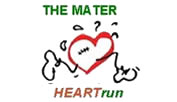BOWEL RESECTION IN CHILDREN
Abstract
Background: In developed countries, most bowel resections in children are for congenital
anomalies and massive resection and short bowel syndrome are frequent problems.
0bjective:To review indications, morbidity and mortality of bowel resection in children in a
developing country.
Design: A retrospective study.
Setting: Ahmadu Bello University Teaching Hospital Zaria, Nigeria.
Subjects: Forty six childrenaged 512 years who had bowel resection ina period of five years.
Results: The commonest indication was typhoid perforation 25 (54%), 21(84%) of them aged
>5 years. Intussusception was the indication in eight (17%), six less than one year. Bowel
resection was performed for congenital anomalies in nine (18%) patients, seven of them <1
month (abdominal wall defect in four, intestinal atresia in two, strangulating inguinal hernia
in one, strangulating band in one, Meckel's diverticulitis, one). Resection for trauma and
neoplastic conditions were few (2.4% each). Twelve patients (26%) developed 17 complications
including wound infection in seven (15%) anastomotic dehiscence, five (11%), abdominal
wound dehiscence, three (14%), intra-abdominal abscess and stitch sinus, one (2%) each
respectively. Most of the complications followed right hemicolectomy for intussusception and
resection for typhoid perforation. Massive bowel resection was necessary in only one patient.
There were nine deaths (20%). The mortality was highest in neonates and infants (38%).
Conclusion: The indications for bowel resection in this environment differ from that in
developed countries. Most of the indications (74%) are preventable by improvements in
sanitation and early presentation and treatment. The morbidity and mortality are highest in
neonates and infants and meticulous attention to technical details may minimise them.
anomalies and massive resection and short bowel syndrome are frequent problems.
0bjective:To review indications, morbidity and mortality of bowel resection in children in a
developing country.
Design: A retrospective study.
Setting: Ahmadu Bello University Teaching Hospital Zaria, Nigeria.
Subjects: Forty six childrenaged 512 years who had bowel resection ina period of five years.
Results: The commonest indication was typhoid perforation 25 (54%), 21(84%) of them aged
>5 years. Intussusception was the indication in eight (17%), six less than one year. Bowel
resection was performed for congenital anomalies in nine (18%) patients, seven of them <1
month (abdominal wall defect in four, intestinal atresia in two, strangulating inguinal hernia
in one, strangulating band in one, Meckel's diverticulitis, one). Resection for trauma and
neoplastic conditions were few (2.4% each). Twelve patients (26%) developed 17 complications
including wound infection in seven (15%) anastomotic dehiscence, five (11%), abdominal
wound dehiscence, three (14%), intra-abdominal abscess and stitch sinus, one (2%) each
respectively. Most of the complications followed right hemicolectomy for intussusception and
resection for typhoid perforation. Massive bowel resection was necessary in only one patient.
There were nine deaths (20%). The mortality was highest in neonates and infants (38%).
Conclusion: The indications for bowel resection in this environment differ from that in
developed countries. Most of the indications (74%) are preventable by improvements in
sanitation and early presentation and treatment. The morbidity and mortality are highest in
neonates and infants and meticulous attention to technical details may minimise them.
Refbacks
- There are currently no refbacks.


